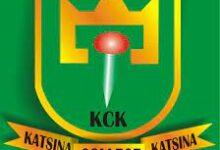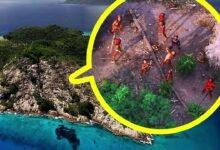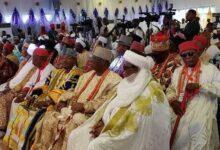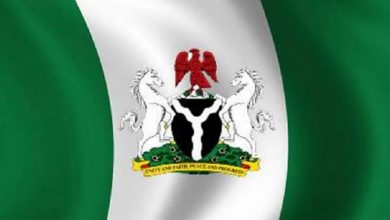
Ibibio People: History, Political System, Language, Religion, Occupations
Ibibio People: History, Political System, Language, Religion, Occupation and Sports. It’s our duty to write down our history and preserve them amid the invading western cultures.
When we talk about the history of a particular people, we refer to the origin of that particular people, how they came about, who their ancestors are and where they originally came from also taking into consideration what how come about the name that the particular people are called and also the different names they bear.
👉 Relocate to Canada Today!
Live, Study and Work in Canada. No Payment is Required! Hurry Now click here to Apply >> Immigrate to CanadaAll of these and many more are taken into considerations when talking about the history of a people.
The Ibibio people who are one of the many tribes in the federal republic of Nigeria are predominantly found the south-south region of the country and are mostly regarded as one of the most ancient of all the ethnic groups in Nigeria.

The Ibibio tribe actually derived the name Ibibio from their first settlement in the present day Aro-Ibom in Arochukwu. It has also been noted that the Ibibio people are most likely the original natives from where most of the other small tribes of Qua-Ibom and Calabar originated from. this settlement by the Ibibio people led to the birth of sub-clans like Annang, Efik, Oron etc.
During the 7000BC, permanent settlements had already begun by the sub-ethnic groups within the Ibibio tribe. The Ibibio language being spoken by the Ibibio people is said to be the most ancient of all the semi-Bantu languages.
Also the Ibibio tribe is said to be the 4th largest ethnic group in Nigeria, but during the 1914 amalgamation the royal Niger company classified Nigeria as having only 3 major ethnic groups of Hausa, Igbo, Yoruba.

It has been stated by available evidence that the original settlements of the Ibibio people are at Usak Edet(Isangele) in present day Cameroon which now forms a small tribe in Cameroon called the Kumba Division of Cameroon.
When the Ibibio people left Cameroon they are believed to have arrived at their present day location via two major directions. Estimated during the 8000BC, the first group arrived Nigeria through the overland route and settled at Ibom which the present day Arochukwu and there they erected the shrine which is famously known as the Juju of Arochukwu.
Upon arriving at Ibom, some of the Ibibio people spread to Uyo, Abak, Ikot Ekpene, Ini and other areas. The second group of the Ibibio people came to the mainland by sea and settled at Uruan, Ibeno, Oron and Eket. The sub-group now called Efik split from their kinfolk during the 16th century and it is believed that they started to claim a separate identity from the 1600AD.
👉 Relocate to Canada Today!
Live, Study and Work in Canada. No Payment is Required! Hurry Now click here to Apply >> Immigrate to CanadaA section of the Ibibio people who were either expelled by the on-coming of the Igbo or as a result of the defeat by a town of their own later migrated to old Efik town near Ikoneto and later most of them migrated again to Mbiabo, some to Adiabo and others moved to Creek town.
This set of Ibibio people finally settled during the 1670 and by this time some of the Ibibio chief from Creek town that were cut off by the European Traders at Obutong migrated to a new place called duke town which is about 4 kilometers south of Obutong.
Ibibio People Political System
The political system of the Ibibio people was a traditional type that had communities with large families who had blood ties and each of this large families were ruled by heads called Ikpaisong who ruled with the Mbong Ekpuk (family heads) who with other heads of societies and cults made up the Asan, Afe, or Esop Ikpaisong.
The Ibibio people also had the Ekpo or Obon who enforced the decisions and orders of the of the traditional council and also acted as messengers of the spirits, military and police of the communities.
The members of this Ekpo or Obon group were most of the time masked when performing their duties and this made their identities unknown and this led to them being able to brutalize people who refused to obey the orders of the traditional council.

The days that the Obon is performing women are not to go near or be outside during their performance which usually is accompanied by music.
Membership the Ekpo and Obon group is open to all Ibibio males but such males must have access to wealth to move into the political influential grades because during that time it was only those had enough wealth were considered for positions.
Language of the Ibibio People.
The term Ibibio is both an ethnic and linguistic term and so therefore all the Ibibio people speak the same language. The Ibibio people speak the Efik-ibibio which is the language of the Kwa branch of the Niger-Congo family.
Since it is the best known language, Efik was established as the literary language which most educated people of the Ibibio ethnicity understood.
The language difference among the different groups within the Ibibio society was a result of territorial isolation and the variations indicate adaptation to diverse contacts and social difference among various Ibibio groups.
Language similarity reduced with the expansion and increase in population and this led to the speakers of the Ibibio language forming variants of the Ibibio language thus leading to the various sub-ethnic group under the Ibibio ethnicity having their own language which are mostly Uruan, Annang, Oron, Eket, and Ibeno and they are classified as the major languages of the Ibibio people.
Religion of the Ibibio People.
Before the colonial era, the Ibibio people`s religion were of two dimensions which was the pouring of libation, consultation, invocation and the worship of the God of heaven (Abasi Eyung) and the God of the Earth (Abasi Isong).
This was done by the constitutional and religious heads which were the traditional rulers (Obong Ikpaisong). The other dimension centered on the invocation, worship and communication of the God of heaven (Abasi Eyung) and the God of the Earth (Abasi Isong) through spiritual and invincible entities of the different Ibibio divisions such as Etefia, Awa Itam etc. the temple chief priest were the priest of these spiritual entities.
During the colonial era, the Ibibio people were introduced to Christianity in the 19th century by the early missionaries. Samuel Bill established the Qua-Iboe church at Ibeno where he started his work and later the catholic church, the Methodist and the Presbyterian came to the Ibibio hinterland.
Other churches were later introduced who came in later in the second part of the 20th century. Today the Ibibio people are predominantly Christians.
Major Occupations of the Ibibio People and Recreations
The people of Ibibio are majorly farmers, fishermen and traders, farming is the major occupation of the Ibibio people who settle in the uplands while fishing is the main occupation of those in the river side and the fishing is done at fishing ports commonly called INE.
The middle men in the Ibibio who act as brokers between the producers of good and consumers are those mainly involved in trading.
Other than the farming and fishing seasons, the Ibibio people spend most time with various recreational activities like wrestling, swimming etc. also moonlight plays provide the plat form for social interactions particularly among the youths.






